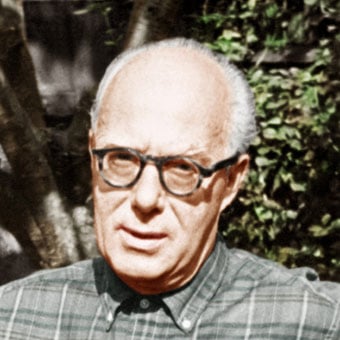
Roberto Gerhard
Roberto Gerhard studied piano in Barcelona with Granados and composition with Pedrell, who aroused his interest in Catalan folk music * Pupil of Schoenberg in Vienna and Berlin (1923-28) * On return to Barcelona, first Spanish serial pieces included Wind Quintet * Worked during 1930s as composer, music professor and editor at Catalan Library * Undertook collaborative projects with Mirò in Ariel, and Massine and Ballets Russes de Monte Carlo in Soirées de Barcelone * After Civil War defeat of Republicans emigrated to Paris, settling finally in Cambridge * As an emigré, struggled to achieve musical recognition in UK * 1940s saw composition of ballet Don Quixote and opera The Duenna, which effectively combine Catalan folk elements with individualised serial technique * Music of 1930s and 40s is underpinned by infectious dance rhythms and colourful orchestration * Acclaim only came in 1960s, through support of BBC and numerous prestigious commissions * 1990s witnessed renewed Gerhard interest, including first staging of The Duenna and two recording series on Auvidis and Chandos
Works by Roberto Gerhard include:
Don Quixote (1940-41,1947-49) Ballet in one act
Violin Concerto (1942-43)
The Duenna (1945-47) Opera in three acts
Symphony No.1 (1952-53)
> Listen to our Roberto Gerhard playlist on Spotify
"Melody is not necessarily embodied in 'lines' or 'tunes' alone. It can well up from within the music and suffuse even the most complex sound-structures. If I had to give a general characteristic of my own music, this would be it". — Roberto Gerhard
